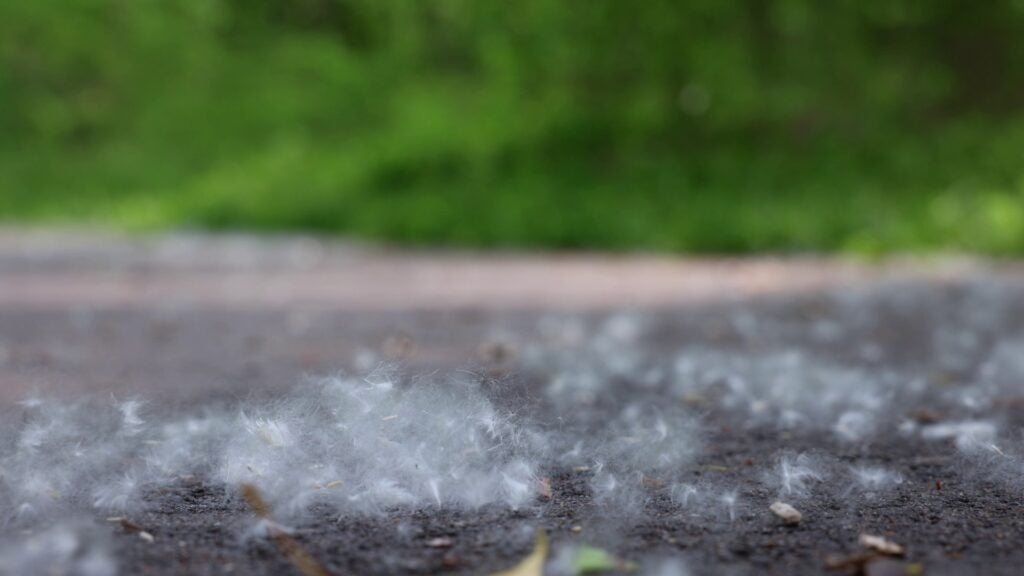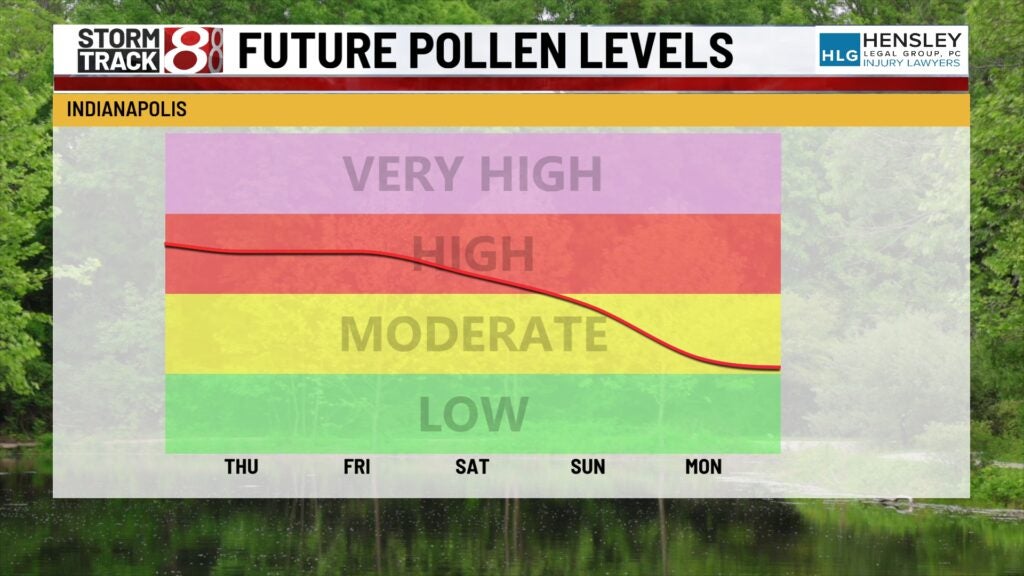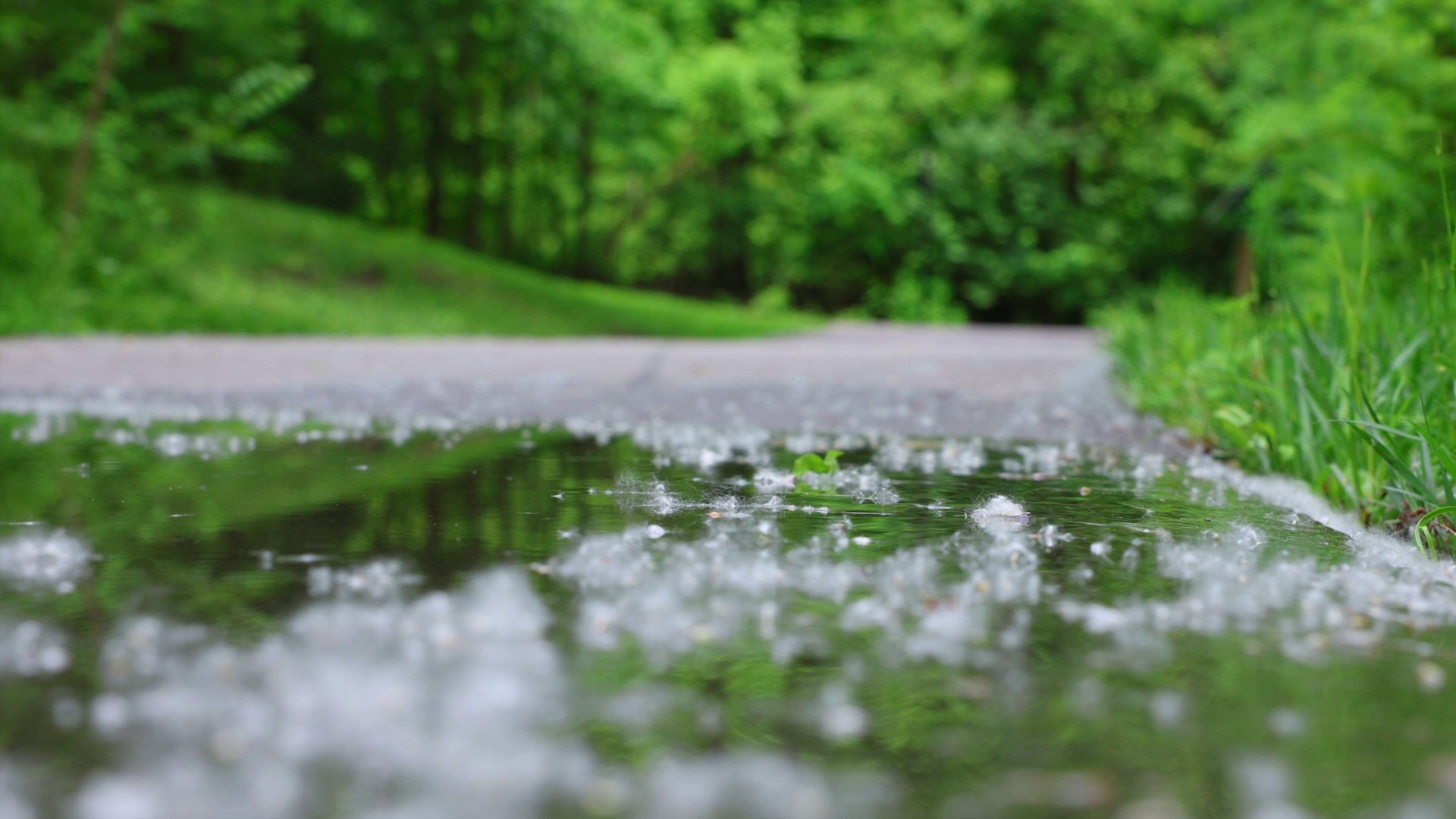Cottonwood pollen set to slow amid wet weekend weather in Indiana
INDIANAPOLIS (WISH) — As Indianapolis transitions from a spell of rainy days to an upcoming stretch of dry and sunny weather, residents are noticing a different kind of precipitation: fluffy white seeds from cottonwood trees. These seeds, a hallmark of late spring, are now making their annual appearance, creating picturesque scenes at local parks and along city streets.

Cottonwood trees, known scientifically as Populus deltoides, are native to North America and thrive in the wet, fertile soils along riverbanks and water sources. Each spring, they release their seeds, which are encased in cotton-like fibers. These fibers help the seeds disperse over a wider area as they are carried by the wind, an ingenious method of propagation that ensures the survival and spread of these towering trees.
The recent warm, dry weather has helped to inflame cottonwood pollen levels but it seems the end of this season is in sight. Not only does it look like the cottonwoods might have gotten most of their pollen out with this recent burst of weather, but some rains coming this weekend look likely to wash away most of the remaining cottonwood pollen. It will of course wash out the regular pollen in the air too.

While beautiful, the abundance of cottonwood fluff can pose challenges for allergy sufferers and homeowners. The seeds can clog air filters, and the fluff can accumulate on lawns and in gutters. Allergy specialists advise that while cottonwood trees aren’t a major allergen, the fluff can carry pollen from other plants, which can exacerbate allergic reactions during this high-pollen season.
City maintenance crews are prepared for the increase in cottonwood seeds. Regular street sweeping and inspections of public parks are planned to manage the buildup of seeds and ensure that public spaces remain clean and accessible.

Despite these challenges, many residents enjoy the whimsical quality of the floating seeds. Local parks continue to be popular destinations for families and individuals looking to enjoy the outdoors, even as they navigate the fluffy landscapes created by cottonwood seeds.
As we move into late May, Indianapolis will see the end of cottonwood season. This natural phenomenon, while temporary, offers a unique spring experience that highlights the dynamic and ever-changing nature of our local environment. Hopefully, other spring pollens will soon fade to help outdoor allergy sufferers all across Indiana.



